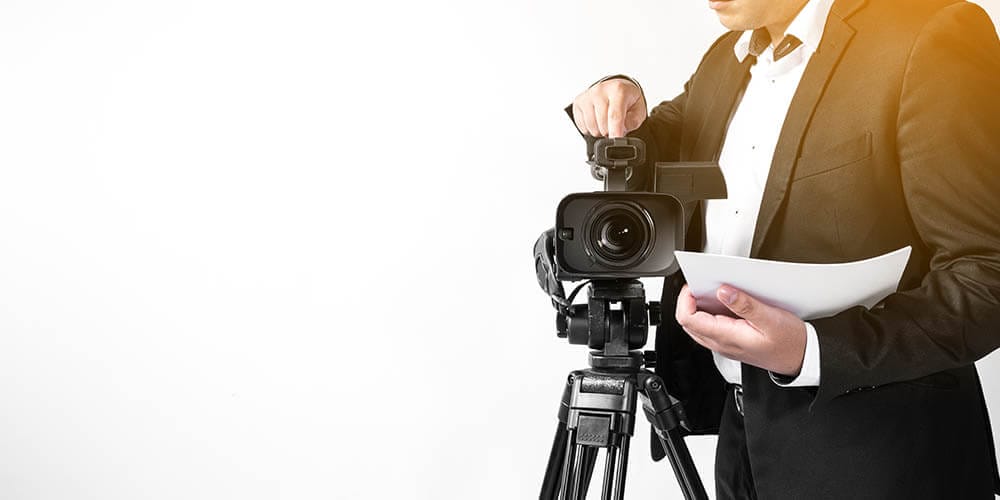The Role of Legal Videography in Depositions and Tests
Legal videography has become an important tool in both depositions and tests, supplying a diverse method to recording witness testaments. By catching not only the spoken word yet likewise the subtleties of non-verbal communication, this tool improves the trustworthiness of testimonies and preserves crucial proof for future procedures (legal videography). As attorneys progressively recognize its worth, it triggers a deeper exam of exactly how these aesthetic documents can influence juror understandings and trial end results. What ramifications might these growths hold for the future of lawful practice?

Importance of Lawful Videography
Legal videography plays an essential duty in the documentation and discussion of depositions and trials. This specialized field combines technological abilities with legal expertise to develop a reliable record of proceedings that can considerably influence situation end results. The aesthetic element of lawful videography enhances the understanding of witness statement, permitting jurors and judges to observe not just the talked words yet likewise the attitude, feelings, and body language of the witnesses.
Furthermore, legal videography offers an unbiased account of events, reducing the capacity for misinterpretation that can accompany written transcripts alone. This visual paperwork works as a vital device during test presentations, promoting a clearer and even more influential story for both plaintiffs and defendants. Furthermore, the capability to replay video clip sectors during court process allows legal teams to emphasize essential points, reinforcing their disagreements effectively.
The value of legal videography prolongs past the court room; it likewise plays an important duty in protecting evidence for future referral, whether for charms or more lawful activity. Therefore, its integration right into the legal procedure is vital for guaranteeing a reasonable and accurate representation of the realities, ultimately adding to the pursuit of justice.

Refine of Legal Videography
While recording the nuances of depositions and trials, the procedure of lawful videography entails several important actions that guarantee top notch, exact recordings. A professional legal videographer prepares by examining the situation products and recognizing the details needs of the deposition or trial. This preparation consists of acquainting themselves with the participants and the context, which helps in recording significant information.
On the day of the recording, the videographer establishes the essential tools, which typically consists of high-definition electronic cameras, microphones, and proper lights. Guaranteeing optimal angles and sound high quality is crucial, as it directly impacts the efficiency of the recording. The videographer interacts with attorneys and participants to develop procedures, making sure that every person understands the recording process.
Throughout the deposition or trial, the videographer thoroughly records the proceedings, paying attention to both spoken and non-verbal signs. This includes capturing the disposition and responses of witnesses and attorneys. After the session wraps up, the videographer might modify the video footage for clearness and conformity with legal requirements, creating an end product that precisely reflects the proceedings for future referral and usage in lawful contexts.
Benefits in Depositions
The consolidation of videography in depositions offers countless advantages that enhance the general procedure of gathering evidence. One key advantage is the ability to catch witness statements with visual and auditory fidelity, supplying a more accurate representation of the witness's disposition, tone, and body movement. This multidimensional method allows attorneys and juries to examine reliability extra properly than standard written transcripts alone.
Additionally, videographed depositions serve as an effective device for protecting statement. Must a witness ended up being inaccessible for trial, their videotaped deposition can be played in court, making certain that their proof remains available and pertinent. This element considerably lowers the risk of losing critical info that might influence case results.

Finally, videography improves the general expertise of the deposition procedure, instilling self-confidence in customers concerning the thoroughness of their lawful depiction (legal videography). By leveraging technology, attorneys can significantly improve the performance of depositions
Influence On Tests
In lots of trials, the assimilation of videography can dramatically influence the discussion of proof and the jury's understanding. Legal videography records witness statements and important proof in a dynamic layout, permitting jurors to engage with the material on numerous degrees. This aesthetic element enhances the narration element of a trial, providing context and psychological resonance that traditional text-based proof may lack.
Additionally, video clip recordings can act as effective tools for impeachment during interrogation. When inconsistencies arise in between a witness's previous statements and their courtroom statement, video proof offers an unbiased recommendation that can guide jurors' viewpoints. This immediacy and clarity can boost the reliability of a party's story while at the same time threatening opposing disagreements.

Future Trends in Legal Videography
As we look towards the future of lawful videography, several arising fads assure to improve its duty within the court room. One substantial fad is the assimilation of fabricated knowledge (AI) in video clip evaluation and editing and enhancing. AI can simplify the procedure of recognizing vital minutes in taped depositions, enabling attorneys to rapidly access relevant content, thus improving efficiency in case prep work.
In addition, the increase of online reality (VR) and boosted fact (AR) innovations is expected to transform exactly how jurors experience evidence. legal videography. By submersing jurors in a simulated atmosphere, these technologies can provide an extra extensive understanding of intricate scenarios, bring about more enlightened considerations
Furthermore, the raising need for remote depositions, sped up by the COVID-19 pandemic, will likely continue. Lawful videographers will certainly need to adjust to new software and systems to guarantee top notch recordings in virtual settings.
Last but not least, the expanding emphasis on information safety and security will certainly require more stringent procedures for storing and sharing video proof. As the legal landscape progresses, legal videographers have to stay abreast of these fads to maintain their importance and effectiveness in the judicial procedure.
Conclusion
In summary, lawful videography offers a critical function in the judicial procedure, boosting the honesty of depositions and site link tests. As innovation proceeds to advance, lawful videography is positioned to further transform its function within the legal landscape.